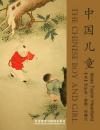the Chinese spi
毛艳
Since reading Gu Hongming's "the Spirit of the Chinese", which enjoys a high reputation, I have been impressed and touched by several places he mentioned in the book. For some of the views, some are agreed with, but some feel worthy of deliberation.
In the chapter entitled "Human nature is good at the beginning," Mr. Koo wrote, "in China, a person does not feel the need to protect himself with the power of nature, because he is convinced that everyone recognizes that justice and justice are higher forces than natural forces." So everyone thinks that moral obligation is something that must be obeyed. This remark highly praised the traditional virtues of the Chinese people from ancient times to the present. At the same time, he also compared the spirit of the Chinese people with the traditional culture of the West, and wrote out his own views on it, which I very much agree with. He believes that westerners believe in the traditional theory of "sexual evil" and then fear God and the law, so they need external coercive forces to restrain them. They spend a lot of money to provide for priests, the army, and so on. This creates a strong constraint on people themselves. This kind of restraint in turn impels the person to go to the extreme, extends to the state machine to form the militarism. This, I think, is also the main reason why the powers coveted China at the beginning of the 20th century and why so many disastrous wars were waged in the history of imperialism.
But China is different, China has "good citizen's religion", namely the moral sense self-restraint, and then extends to its highest duty, namely the duty of loyalty. China's good civic religion does not need to be pastor or police to maintain state order very well. And the first rule of good civic religion is to believe that "human nature is good at the beginning", the law of love is to love parents, the law of justice is loyalty, loyalty. Thus, a true Chinese, both with the wisdom of the learned, but also the most primitive good, so the Chinese spirit is a long history, indelible.
To be sure, we need to persist in thinking problems with the ideological concept of "everything from reality", "seeking truth from facts" and "keeping pace with the times". In other words, in Mr. Koo's time, the social situation was exactly as the old gentleman said. However, we cannot rule out the patriotic feelings in Mr. Koo's mind, which is biased towards his own motherland, and even the fact that he is not satisfied with certain parts of the West and exaggerates it or even portrays it as a common problem in the West.
In a word, from the book "the Spirit of the Chinese", I still get a lot of things, from which I can learn about people's thoughts and ways of life, as well as the attitude towards the West. But in the globalization of the world today, we need dialectical analysis and thinking, the Chinese nation to better development






 京公网安备 11010802032529号
京公网安备 11010802032529号